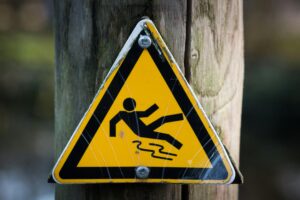
Understanding Your Responsibilities—and Your Risk—When Someone Gets Hurt Helping Around the House
DIY home improvement projects have surged in popularity in recent years, thanks to YouTube tutorials, HGTV inspiration, and cost-saving motivations. But while tackling a renovation yourself might seem harmless, few homeowners realize the legal liability they assume when someone gets hurt on their property—especially if that person was helping with the work.
Whether it’s a friend helping you install a new deck, a neighbor patching your roof, or a “handy” cousin offering free labor, accidents happen. And when they do, you could be legally responsible for their injuries—even if they volunteered.
Here’s what homeowners need to know about premises liability, duty of care, and personal injury risks when taking on DIY projects with help from others.
🧱 Who’s Considered a “Helper” in a DIY Project?
When it comes to liability, the law often distinguishes between different categories of people on your property:
Invitees: People you invite for mutual benefit (e.g., a contractor or hired worker)
Licensees: Social guests (like friends or neighbors)
Trespassers: People entering without permission
A helper—whether a friend or family member—is usually considered a licensee. While you may not owe them the same duty of care as a professional contractor, you’re still responsible for warning them of known dangers and ensuring the environment is reasonably safe.
⚠️ Common Accidents During DIY Projects
Injury scenarios during home renovations are more common than people think. Examples include:
Falling from ladders or roofs
Power tool accidents
Collapsing structures (e.g., stairs, decks, fences)
Electrical shocks
Exposure to mold, asbestos, or chemicals
Tripping over materials or debris
Even well-meaning helpers can be seriously hurt—and those injuries often result in medical bills, time off work, or long-term disability.
⚖️ When Is a Homeowner Legally Liable?
You could be held liable if:
You knew or should have known about a dangerous condition and didn’t warn the helper
You provided unsafe tools or equipment
You supervised the project negligently
You acted in a way that directly caused the injury (e.g., dropping something on them)
In short, if the injury occurred due to your negligence, you could be held responsible for damages—even if the person was helping voluntarily and without pay.
🏠 Does Homeowners Insurance Cover Injuries to Helpers?
In many cases, yes—but with limitations.
Standard homeowners insurance may cover:
Medical payments for minor injuries (regardless of fault)
Liability coverage if you’re found legally responsible for someone’s injury
However, coverage may not apply if:
You were grossly negligent
The helper was being paid (which could trigger worker’s compensation requirements)
You failed to disclose the claim promptly
Always check with your insurance provider to confirm what your policy covers—and consider an umbrella policy for added protection.
💼 What Happens If the Injured Helper Sues?
Even if someone says, “Don’t worry about it,” they may later face mounting medical bills or lost wages—and decide to pursue a personal injury claim. If that happens:
Your insurance company may handle the defense and settlement
You may be sued for negligence
You could be liable for damages including medical costs, lost income, and pain and suffering
This is why it’s important to document everything, take safety seriously, and never assume you’re legally off the hook just because someone offered to help.
🧠 How to Protect Yourself Before Starting a DIY Project
Make safety your top priority: Keep your worksite clear, dry, and well-lit.
Use proper equipment: Don’t rely on old, damaged, or makeshift tools.
Warn of known hazards: Loose floorboards? Wobbly steps? Say something.
Limit risky tasks: Avoid asking helpers to do roofing, electrical, or demolition unless they’re qualified.
Check your insurance: Understand what your policy covers before anyone gets hurt.
Consider a liability waiver: For larger projects, a signed release may reduce legal exposure (though it won’t always fully shield you).
Know when to hire a pro: If the job involves structural, electrical, or plumbing work, licensed contractors are safer—and often legally required.
✅ Conclusion: DIY Doesn’t Mean Risk-Free
Taking on home projects yourself can be satisfying and budget-friendly—but when friends, neighbors, or relatives get involved, so does liability. If someone is injured while helping you, your homeowners insurance and personal finances could be on the line.
Before your next project, take the time to assess risks, communicate clearly, and prioritize safety. And if someone has already been injured while helping, consult a personal injury attorney to understand your rights and responsibilities.






